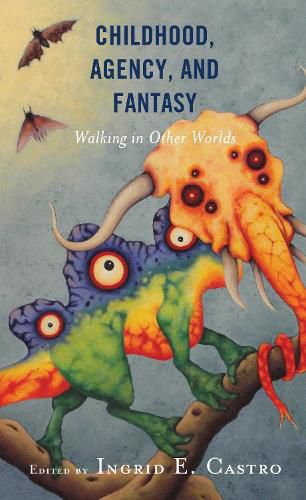Readings Newsletter
Become a Readings Member to make your shopping experience even easier.
Sign in or sign up for free!
You’re not far away from qualifying for FREE standard shipping within Australia
You’ve qualified for FREE standard shipping within Australia
The cart is loading…






Joining the emergent interdisciplinary investment in bridging the social sciences and the humanities, Childhood, Agency, and Fantasy: Walking in Other Worlds explores linkages between children’s agency and fantasy. Fantasy as an integral aspect of childhood and as a genre allows for children’s spectacular dreams and hopeful realities. Friendship, family, identity, loyalty, belongingness, and emotionality are central concepts explored in chapters that are anchored by humanities texts of television, film, and literature, but also by social science qualitative methods of participant observation and interviews. Fantasy has the capacity to be a revolutionary change agent that in its modernity can creatively reflect, critique, or reimagine the social, political, and cultural norms of our world. Such promise is also found to be true of children’s agency, wherein children’s beings and becomings, rooted in childhood’s freedoms and constraints, result in a range of outcomes. In the endeavor to expand theory and research on children’s agency, fantasy becomes a point of possibility with its expanding subjectivities, far-reaching terrain, and spirit of adventure.
$9.00 standard shipping within Australia
FREE standard shipping within Australia for orders over $100.00
Express & International shipping calculated at checkout
Joining the emergent interdisciplinary investment in bridging the social sciences and the humanities, Childhood, Agency, and Fantasy: Walking in Other Worlds explores linkages between children’s agency and fantasy. Fantasy as an integral aspect of childhood and as a genre allows for children’s spectacular dreams and hopeful realities. Friendship, family, identity, loyalty, belongingness, and emotionality are central concepts explored in chapters that are anchored by humanities texts of television, film, and literature, but also by social science qualitative methods of participant observation and interviews. Fantasy has the capacity to be a revolutionary change agent that in its modernity can creatively reflect, critique, or reimagine the social, political, and cultural norms of our world. Such promise is also found to be true of children’s agency, wherein children’s beings and becomings, rooted in childhood’s freedoms and constraints, result in a range of outcomes. In the endeavor to expand theory and research on children’s agency, fantasy becomes a point of possibility with its expanding subjectivities, far-reaching terrain, and spirit of adventure.